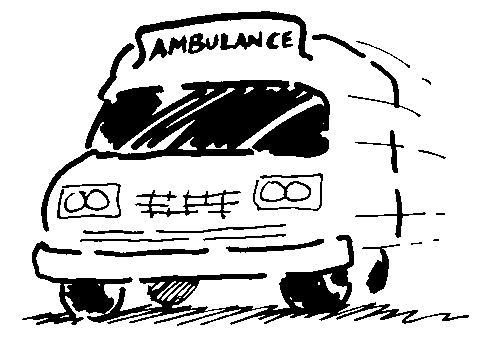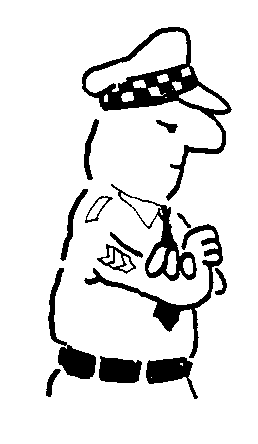- TOOL KITS
- A. The NEXT Step
- B. Promoting Independence
- C. Phone Apps
- D. Return to Work
- E. Motivational Interviewing
- F. Paediatric Brain Injury Rehabilitation Resources
- a) Introduction
- 0. Introduction
- 1. Working together promoting independence
- 2 . Using this kit
- b) Issues, goals, action
- 3. Identifying issues W
- 4. Setting goals W
- 5. Making goals happen W
- 6. Monitoring progress W
- c) Strategies Myself and my relationships
- 7. My behaviour's changed W
- 8. Thinking
- 9. Relationships W
- 10.Conversations
- Managing memory, money and time
- 11. Remembering information and messages
- 12. Finances and handling money W
- 13. Managing time W
- Household tasks
- 14. Food and shopping W
- 15. Food and meals W
- 16. House keeping
- 17. Laundry
- Getting around
- 18. Public transport W
- 19. Accessing the community
- Life tasks
- 20. Self care
- 21. Fitness
- 22. Leisure
- 23. Employment
- 24. Continue learning
- 25. Health and well-being
- Emergencies
- 26. Emergencies
26. Emergency situations
What do I do in an emergency situation or if my safety or another's safety is at risk?
In any emergency situation, it is always better to know in advance what to do. This section should be read and familiarised so that if you ever come up against any of these emergency situations (and you may), you will have a good idea what to do.
What do I do if there is a fire?
What do I do if there is a medical emergency?
When should I call the police?
What if someone comes whom I don't want to see?
What do I do if there is a fire?
1. If you are near the fire, get away. If anyone else is in danger and you can reach them safely, also alert them to get away. Remember, smoke can kill so "Get down low and Go, Go, Go."
2. If you can safely ring for help, do so. Ensure you ring 000 and let the operator know there is a fire. Give them all the necessary details, for example your address and your name. Then get out of the house or premises where you are. It can be a good idea to make a note of your address and stick it above the telephone as it is easy to forget this kind of information when there is an emergency.
3. If you cannot safely ring for help, leave the premises and call for the next door neighbour to call for help.
4. Do NOT try and go back to get anything until the fire brigade says it is safe to do so.
5. Practise having fire drills at home so that if there is a fire or an emergency you will know the quickest and safest way to leave the house.
6. Make sure you have smoke detectors correctly installed and working in your home, as this will give you the best warning when there is a fire. They should be tested each month. So pick a date and always test the alarms this day each month.
What do I do if there is a medical emergency?

1. If you or someone else requires urgent medical treatment, you may have to call for an ambulance to take you to hospital. Again, call 000 and tell the operator that you need an ambulance. Give them all the details they require and then hang up. Make sure you open the door for them so that when they arrive, they can get to you or whoever needs the ambulance as quickly as possible.
2. If it is someone else that is unwell, make sure they are comfortable and reassure them that help is on its way; If they are not breathing, you may have to carry out mouth to mouth resuscitation but how you do this will not be discussed in this manual. If you would like to learn how to do this and CPR, please contact St John's Ambulance Association and book in to do their training.
3. If you require the ambulance, stay calm and make sure the ambulance people can get to you. Lie down with your legs raised if possible.
4. When the ambulance arrives, co-operate with them and let them know in as much detail as possible what has happened for you to need an ambulance. If they want to take you to hospital, let them.
When should I call the police?

It is appropriate to call the police in the following situations:
- When you are visited by somebody you don't wish to see and they won't leave when you ask them to.
- There has been a break in at your house.
- You have been verbally or physically assaulted.
- When you are alone at home and you see a person in your yard or at your window.
- You see something happening to property or to another person that you think is dangerous or suspicious.
Strategies for action
1. If an incident occurs or is occurring where you think the police should be called, again ring 000 and tell the operator that you need the police. Again, provide them with all the necessary details that they require to come to where you are.
2. If you are in danger, try as safely as you can to get yourself away from the dangerous situation until the police arrive.
3. When the police arrive, cooperate with them and if they ask for information, provide it with as much detail as possible.
4. If you are arrested or detained for questioning, try to establish what for and don't say anything until you have a lawyer or solicitor present. Let them know you have a disability.
What if someone comes whom I don't want to see?
It is important to remember you have the choice to see who you want, at a time convenient to you. If a person you do not want to see approaches you, whether you are at home or out in the community, you do not have to see them. It is your right to let this person know you don't want to see them and expect your decision will be respected.
Helpful hints
If you are at home and the person is outside:
1. If somebody you don't want to see comes to your front door and you recognise him or her as someone you don't want to see, don't open the screen door to them.
2. Through the screen door, clearly let them know you don't want to see them. For example, "I don't want to see you now, please go away".
3. Hopefully, the person will leave you alone. If they don't, close your wooden door.
4. If they still won't leave, go inside and call the police.
If you are at home and the person is inside the house with you:
1. If you have a guest in your house whom you wish to leave, ask them to do so.
2. If they won't leave, know you can leave the house. If you leave the house go to your neighbours and call the police.
If you see another person experiencing difficulty:
It is quite probable you may be out with another or see another who may be in difficulty. If the individual is with another person who is mistreating the individual go and call the police. You will need to provide them with specific information about who you are, where the incident is happening and what is happening. Do not try and intervene. In intervening you may be placing yourself at risk.
If you see an individual who is hurt and alone, you can go and speak to the individual to find out how they are, or you can telephone the police or ambulance to provide medical assistance. If you talk to them and identify that the individual will require medical assistance you can call the ambulance or police. You will need to tell them who you are, where the individual is and why medical or police assistance is required. If the individual was able to provide you with details of what happened you can provide these to the telephone operator.
Finishing up
Generally when you find yourself in a situation that is beyond your control, the best thing you can do is not panic. Emergency situations can and will happen at any time and often without warning so the best thing you can do is be prepared and know what to do.
Gemma's experience
One day Gemma was heating some oil for hot chips. Gemma let the oil get too hot and it began to spit. Gemma had curtains above her stove area. Unfortunately the spitting oil landed on the curtains and the curtains caught on fire. Gemma didn't know what to do and threw water onto the flames. This only made the oil fire worse. Gemma then remembered you don't throw water on an oil fire and that you need to smother the flame. Gemma had a fire blanket in her kitchen. She grabbed the blanket and threw it over the flames. The flames went out and she called her case manager when she was sure the flames were out. Gemma and the case manager worked out the next steps of action to make an insurance claim.
Who can work with me on Emergency Procedures?
- Contact the Brain Injury Rehabilitation Unit occupational therapist and case managers
- St John First Aid is a course you can choose to do. Knowing first aid will prepare you for dealing with first aid skills to treat bums, fractures, cuts and bruises before you can get medical help.
